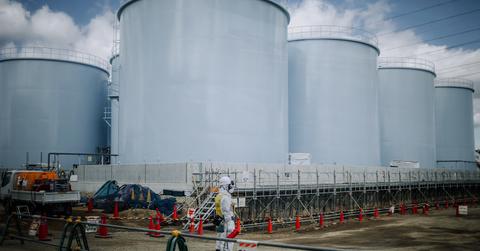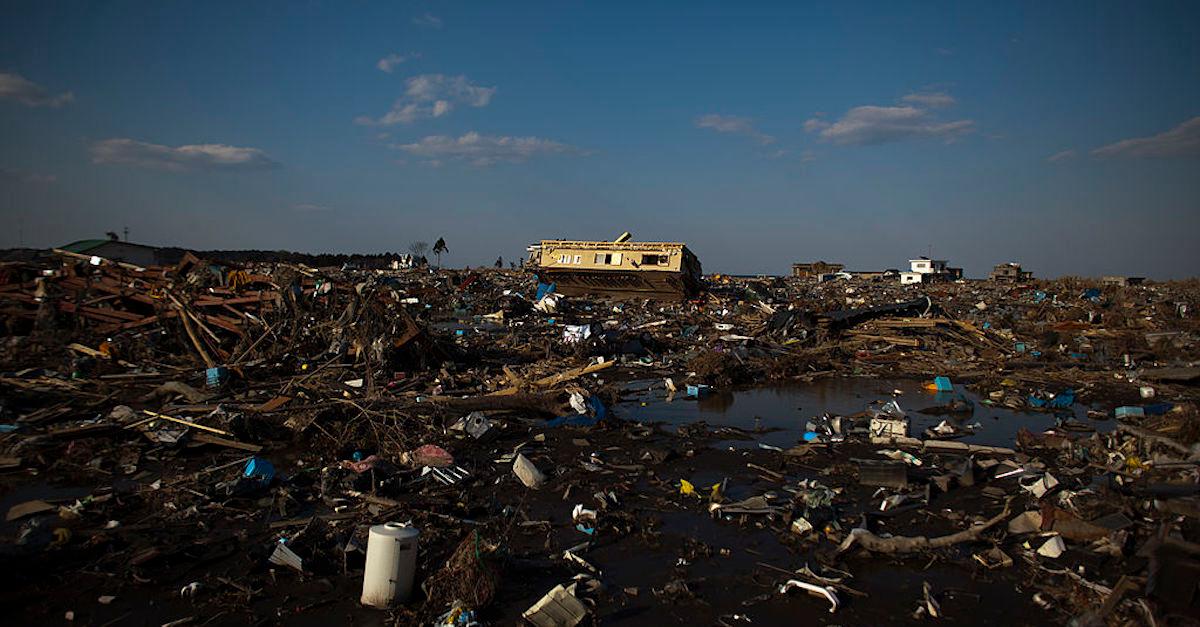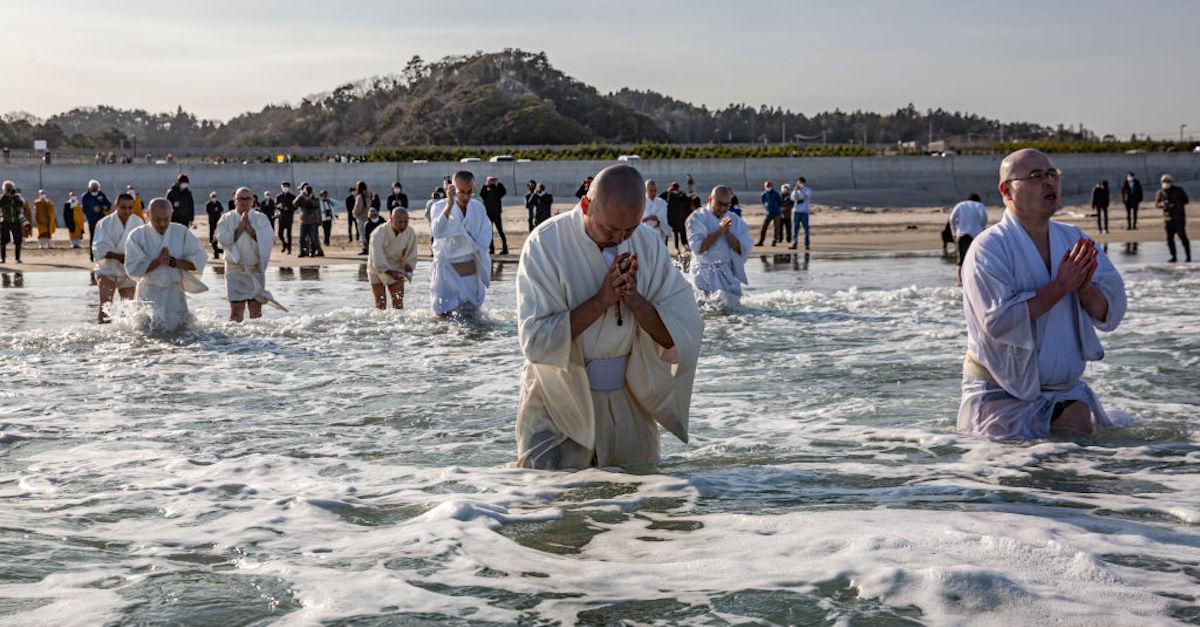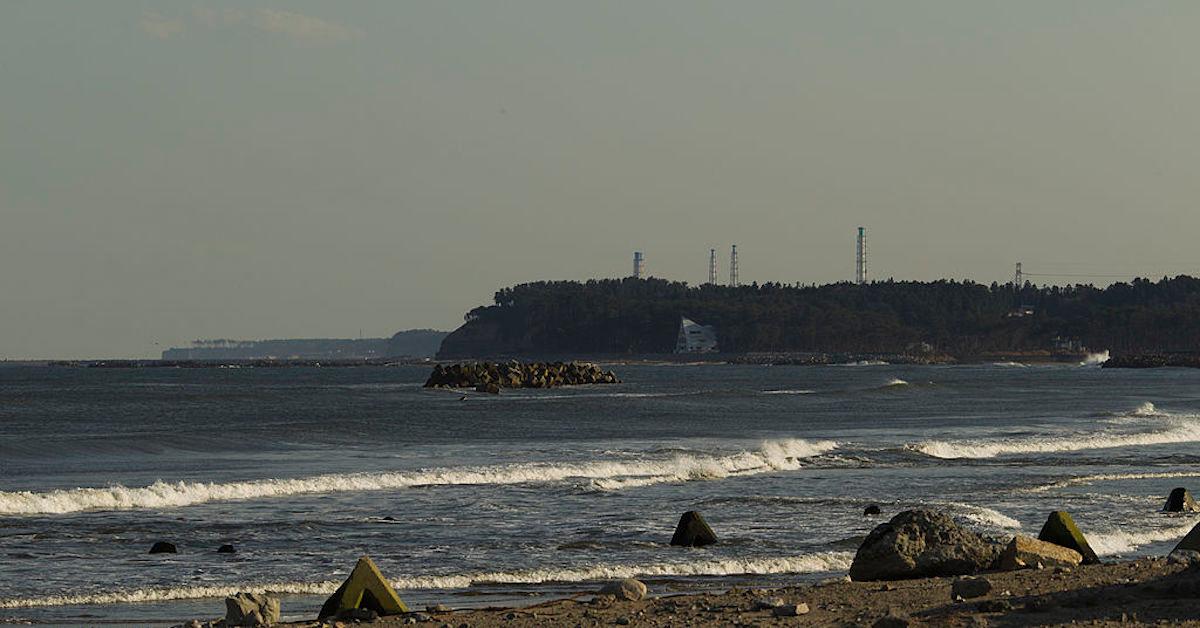Fukushima: About the 2011 Nuclear Disaster, Updates, and More
Updated April 13 2021, 4:27 p.m. ET

Among the many nuclear disasters that have taken place worldwide, Fukushima was easily one of the worst. After a major earthquake caused a tsunami to hit the coastal Japanese city, reactors at a nearby nuclear power plant overheated and melted, releasing radioactive materials into the surrounding land and waterways. Now, over a decade later, Japan plans to release the plant's wastewater back into the sea, but environmentalists and neighboring countries fear the consequences.
"Japan has ... unilaterally decided to discharge nuclear wastewater from the Fukushima nuclear power plant accident into the sea, which is extremely irresponsible and will seriously damage international public health and safety and the vital interests of people in neighboring countries," the Chinese Foreign Ministry said in a statement, as per CNN.
Keep reading for more on the natural disaster, and updates from 10 years later.

Here's what happened at Fukushima in 2011:
On March 11, 2011, Japan was hit by a 9.0-magnitude earthquake, the strongest in the country's history, according to Britannica. The earthquake's main shock triggered a tsunami, which swept over a large portion of the country — including the the coastal city of Fukushima. Fukushima is home to the defunct Fukushima Daiichi nuclear power plant, and the impact resulted in yet another fatal disaster with long-lasting and irreversible environmental effects.
The reactors at the Fukushima Daiichi power plant were successfully shut down, but the loss of power caused residual heat to rise within each of the reactors. They effectively melted and started releasing massive amounts of radiation. Workers tried to reverse the effects, but the explosions continued and more radioactive chemicals were released. Over 47,000 residents were forced to evacuate their homes, and surrounding waters were contaminated with high levels of iodine-131 for several years.

Buddhist monks pray for the victims of the 2011 Tohoku earthquake and tsunami at a beach on March 11, 2021 in Iwaki, Japan.
10 years later, Japan wants to release the wastewater into the sea.
In March 2021, Fukushima mourned the disaster that had taken place 10 years prior. And only a month later, Japan has released plans to release over 1 million metric tons of formerly radioactive water back into the Pacific Ocean, in only two years from now, according to CNN. The water has been treated over the last decade, and there had been tentative plans to release the water earlier, though they were continuously pushed back due to safety concerns.
The Japanese government is ensuring residents, fishermen, and environmental activists that the water will go through treatment that removes most radioactive materials aside from Tritium, which isn't harmful to humans in limited amounts.
"It is not like you are going to see the sea glowing in purple or green, and all fish will be dead, and the Pacific Ocean will be killed. Of course not," said International Atomic Energy Agency (IAEA) Director General Rafael Mariano Grossi, as per CNN.
"This has been done ... in the North Atlantic and the Mediterranean, in many parts of the world, and there is no adverse environmental impact whatsoever... There wouldn't be any authorization or any endorsement, if I can put it like this, from the IAEA to an operation that is causing harm or that is not environmentally neutral," he continued.

Why are people worried about Fukushima's water being released into the Pacific Ocean?
Environmental activist groups worldwide are protesting the release of Fukushima's water into the Pacific Ocean, according to The Guardian. Greenpeace has noted that radioactive materials such as carbon-14 could remain in the water, harm the food chain, and damage DNA — unless more technology is developed to filter the water.
Local fisherman, who have been heavily impacted since the 2011 crisis, are also fighting the Japanese government's decision to move forward with this controversial action.
“The message from the government that the water is safe is not reaching the public, that’s the huge problem,” an official with the association of Fukushima fishermen unions told Agence France-Presse, as per The Guardian. “Our efforts in the past decade to restore the fish industry will be for nothing.”
Scientists say the health risks will be minimal as long as the dilution and release of the water are controlled, but there's no way to confirm it's no risk at all — unless the Japanese government changes their minds, I guess we'll just have to wait and see.